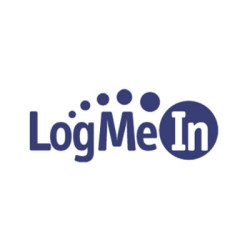Top Class Actions’s website and social media posts use affiliate links. If you make a purchase using such links, we may receive a commission, but it will not result in any additional charges to you. Please review our Affiliate Link Disclosure for more information.

Lead plaintiff Darren Handy was found to be unable to uphold his claims that the software company improperly notified users that it would be terminating the LogMeIn Free app.
LogMeIn is a software provider who maintained apps to allow customers to remotely access their desktop computers using a virtual private network. LogMeIn Free allowed customers to access their desktop via another desktop or laptop computer. The company’s paid app, Ignition, allowed customers to have access via their smartphone or tablet.
Handy said he downloaded the LogMeIn Free app in 2009 and later purchased Ignition for $29.99 per year. He claims he was under the assumption that it was a premium supplement to LogMeIn’s free app.
LogMeIn introduced a third product in 2014 that charged an annual fee and required a subscription. LogMeIn posted a notice on its website alerting customers that it planned to gradually migrate LogMeIn Free users and Ignition users to the new product that would combine the two products into a paid-only app.
LogMeIn eventually discontinued their free app but Ignition was still available and fully functional.
According to Handy, the two apps “were ‘inextricably intertwined’ because of the technology, user preferences and consumer expectations.” He claimed, “LogMeIn Free and LogMeIn Ignition both served a similar role, and are utilized for this same function, yet it separate contexts and temporal settings.” He said they were meant to be “used in tandem” and “not in isolation.”
In the LogMeIn class action lawsuit, Handy alleged that users would only use the two apps together, so the company essentially discontinued both apps.
U.S. Magistrate Judge Jennifer Thurston disagreed, and pointed out that the plaintiff had used LogMeIn Free on its own for over a year before he purchased Ignition. She said Handy also used Ignition on its own for a year after LogMeIn Free was discontinued.
Judge Thurston said that because the products were not intertwined, LogMeIn had no duty to alert Handy when he purchased Ignition that LogMeIn Free could be discontinued, saying Handy’s failure to read the terms and conditions was “insufficient to avoid the contract.”
Handy claimed that LogMeIn’s statement on the website about gradually phasing out Ignition as it moved to LogMeIn Pro constituted false advertising since the company never discontinued Ignition and he believed the statement was intended to persuade users to purchase the new app.
Judge Thurston responded to Handy’s false advertising claims saying that the statement did not trick Handy because he did not buy a subscription as a result and he continued to use the service.
In support of her summary judgment in favor of LogMeIn and subsequent closing of the case, Judge Thurston summarized, “While he may be outraged by what he feels occurred to others, the court is not clear why he believes that this outrage makes him aggrieved such that he can vindicate this grievance in this litigation.”
The LogMeIn Class Action Lawsuit is Darren Handy v. LogMeIn Inc., Case No. 1:14-cv-01355-JLT in the U.S. District Court for the Eastern District of California.
ATTORNEY ADVERTISING
Top Class Actions is a Proud Member of the American Bar Association
LEGAL INFORMATION IS NOT LEGAL ADVICE
Top Class Actions Legal Statement
©2008 – 2024 Top Class Actions® LLC
Various Trademarks held by their respective owners
This website is not intended for viewing or usage by European Union citizens.















One thought on LogMeIn Class Action Lawsuit Tossed By Federal Judge
Actually, Logmein has done much worse than what Darren Handy is accusing them for. Too bad, he brought up the one thing they could defend. They first promised to all users many years ago the free version would always be free as part of their own “Mantra” “free forever and should always be free”. AFter years of using free product they then slipped in that it was no longer free with no excuse or apologies with nominal amount and then started gouging year after year. What is sllippery about it-once you started using the free and had it installed on 50 or more computers, then started with nomial charge you figured, ah, what the heck sure, then after a decade or more they start gouging but you dont have time to switch every single user all at once so they got you by balls. They knew and know this. It was a long term bait and switch plan. They also have about 3 other extremely seedy contractual terms that cant possibly hold up in court of law but no one has challenged them yet.